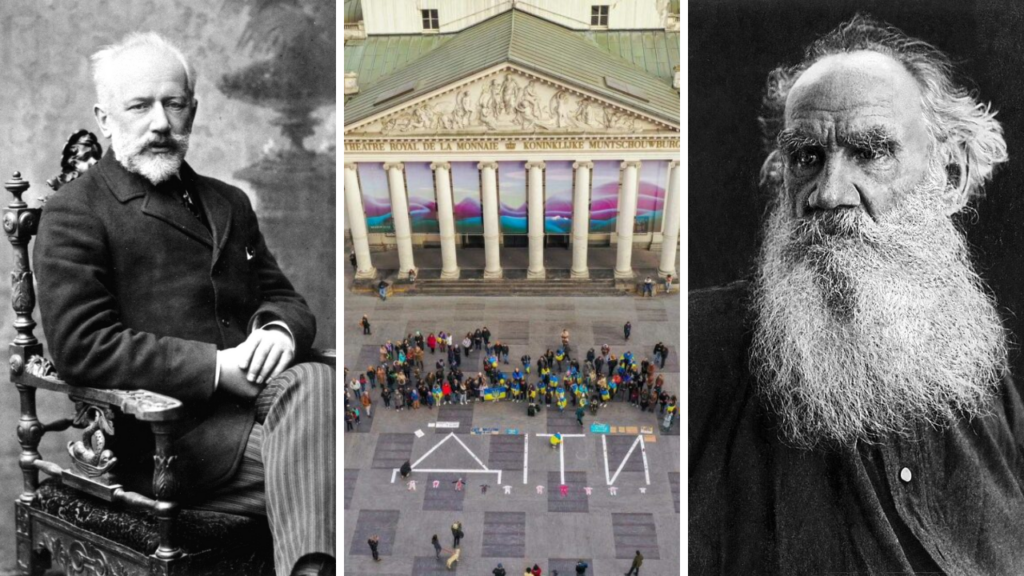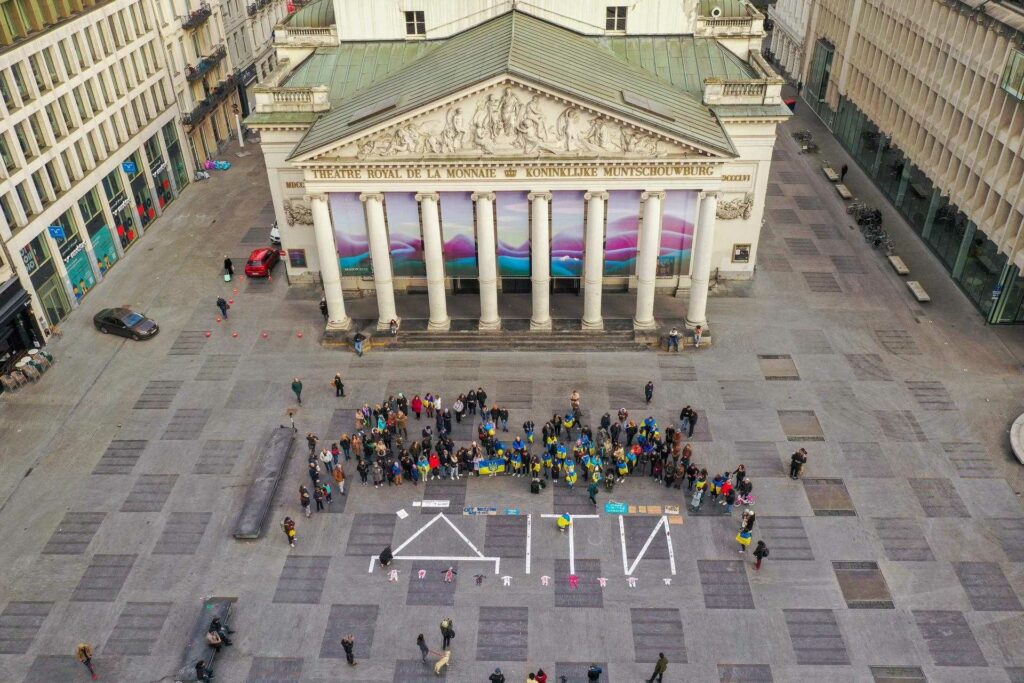Russia's invasion of Ukraine has torn a chasm in Europe's side that will take more than a counter-offensive to heal. Though we may be spared the horrors of military strikes, the secondary effects touch us all.
It isn't only rising energy costs and food shortages, the conflict zone has been extended far beyond the physical battleground and into the cultural milieu with expressions of Russian art dropped from concert halls and galleries around the world.
Yet whilst this tacit understanding stems from a laudable solidarity with the beleaguered Ukraine, denying airtime to displays of Russian culture raises questions about where lines should be drawn between politics and art – indeed, whether the two can be separated at all.
It was a question that French philosopher Roland Barthes explored in his essay 'The death of the author', in which he argued that an individual's appreciation of a work of art should be unclouded by the artist themself. This is a stark contrast to how cultural studies are typically taught (remember at school trying to explain the symbolism of a poem by events from the poet's life?).
Though it is ultimately impossible to isolate art from its creator – or indeed to divorce our own interpretation from the present context – we should be careful of deliberately conflating culture with politics. This is particularly true of art and politics from distinctly different époques.
Yet it is for exactly this reason that Belgium's national opera house La Monnaie/De Munt has come under fire from Promote Ukraine, an NGO that is active around the EU institutions in Brussels. The group plans to picket the theatre on Friday in protest over the prominent place given to Russian artists, such as Tchaikovsky, in the opera's new programme.
La Monnaie has denied that it is giving a platform to Putin's bellicose agenda, stating instead that the performances it has scheduled are indivisible from European culture. Nonetheless, the manifest resistance to this form of censure is brave at a time when so many cultural institutions have fallen in step with the idea that any artistic expression with links to Russia should be dropped.
Now more than ever, it is important to recognise that art shouldn't just soothe our sympathies but instead promote discussion that gives form to otherwise vague notions based more on emotion than reason.
Culture has great value and cultural "wars" do exist. La Monnaie's decision reminds us that we can take a stance, difficult though this may be. How else can we hope to liberate culture?
Let @Orlando_tbt know.
Belgium in Brief is a free daily roundup of the top stories to get you through your coffee break conversations. To receive it straight to your inbox every day, sign up below:
1. Belgium launches biggest-ever trial of 2016 Brussels terrorists
On the occasion of EU Mobility Week, a series of visuals was created to show what some of Europe's capital cities would look like if they were designed to focus on people rather than cars. Read more.
2. Russian culture in the capital? La Monnaie’s upcoming season in the spotlight
Brussels’ iconic Royal Theatre of La Monnaie (de Munt) opera house has announced its next season of performances, with its decision shocking many within the capital and its growing Ukrainian community. Read more.
3. Half of Belgian construction companies forced to suspend projects
Over half (53%) of construction companies have recently had to suspend their activities due to problems with supply, the price of the materials or due to a request of the customer, according to a survey by construction confederation Embuild. Read more.
4. EU wastes more food than it imports, according to EEB
The European Union wastes more food than it imports, undermining its food security amid rising costs of living. The European Environment Bureau (EEB) said on Friday. Read more.
5. Mental health: Smaller scale self-employed workers score worst
While those who are self-employed typically have a reputation for being dynamic and entrepreneurial, the mental well-being of small-scale self-employed people is, on average, the worst of all working people in Belgium, research shows. Read more.
6. The best car park in Europe is in Belgium
At the 20th EPA (European Parking Association) Congress, the car park company Interparking was awarded the Best New Car Park Award for the Confluence car park in Namur, due to the "quality of its facilities." Read more.
7. Hidden Belgium: The Abandoned Boeing 707
Not too many people can explain the old Boeing 707 plane perched on the roof of the Expo Gowalt trade hall near the town of Wetteren. Read more.


